MQsTTang, is a malware that spreads by targeting government and political organizations in Europe and Asia. Employing the MQTT protocol, it functions as a backdoor, allowing remote control of infected systems.
Attackers exploit this access for unauthorized data theft, file manipulation, and potentially deploying additional malicious software. MQsTTang’s focused targeting and versatile control make it a concerning cybersecurity threat. Vigilance against its cunning infiltration techniques is crucial.
MQsTTang Backdoor Overview
MQsTTang functions as a backdoor malware, allowing attackers to execute commands on a targeted computer and obtain the ensuing output. This malware employs the MQTT protocol for communication with its command and control (C&C) server. The individuals responsible for MQsTTang are directing their efforts towards political and governmental organizations across Europe and Asia. Their primary targets include Ukraine and Taiwan.
| Name | MQsTTang Backdoor |
| Detection | Microsoft (TrojanDownloader:Win32/Emotet!ml), Gridinsoft (MQsTTang Backdoor) |
| Similar Behavior | JanelaRAT, Win64/Repezor.A |
| Distribution methods | Infected email attachments, social engineering, malicious online advertisements, software ‘cracks’. |
| Damage | Stolen passwords and banking information, identity theft, additional infections, and more. |
| Fix Tool | See If Your System Has Been Affected by MQsTTang Backdoor Virus |
Technical Analysis of MQsTTang Backdoor
Through its backdoor capabilities, the malware facilitates the circumvention of security protocols, enabling unrelenting access to the compromised system. This potential persistence poses grave threats to victims. The choice of government and political entities as targets by the MQsTTang perpetrators implies intentions encompassing espionage, political manipulation, and potential cybercriminal endeavors.
MQsTTang malware empowers cybercriminals to govern infected machines from a distance, executing a spectrum of directives. This encompasses activities like purloining sensitive data, manipulating or eradicating file. Also it includes introducing supplementary malware, and even asserting absolute dominion over the afflicted systems.
The malevolent actors might harvest crucial data such as login credentials, financial particulars, or intellectual property. Moreover, they could unleash ransomware, crypto-mining parasites, and other malefic software, instigating diverse malicious operations. Consequently, it is imperative to expeditiously eliminate MQsTTang from any compromised machine.
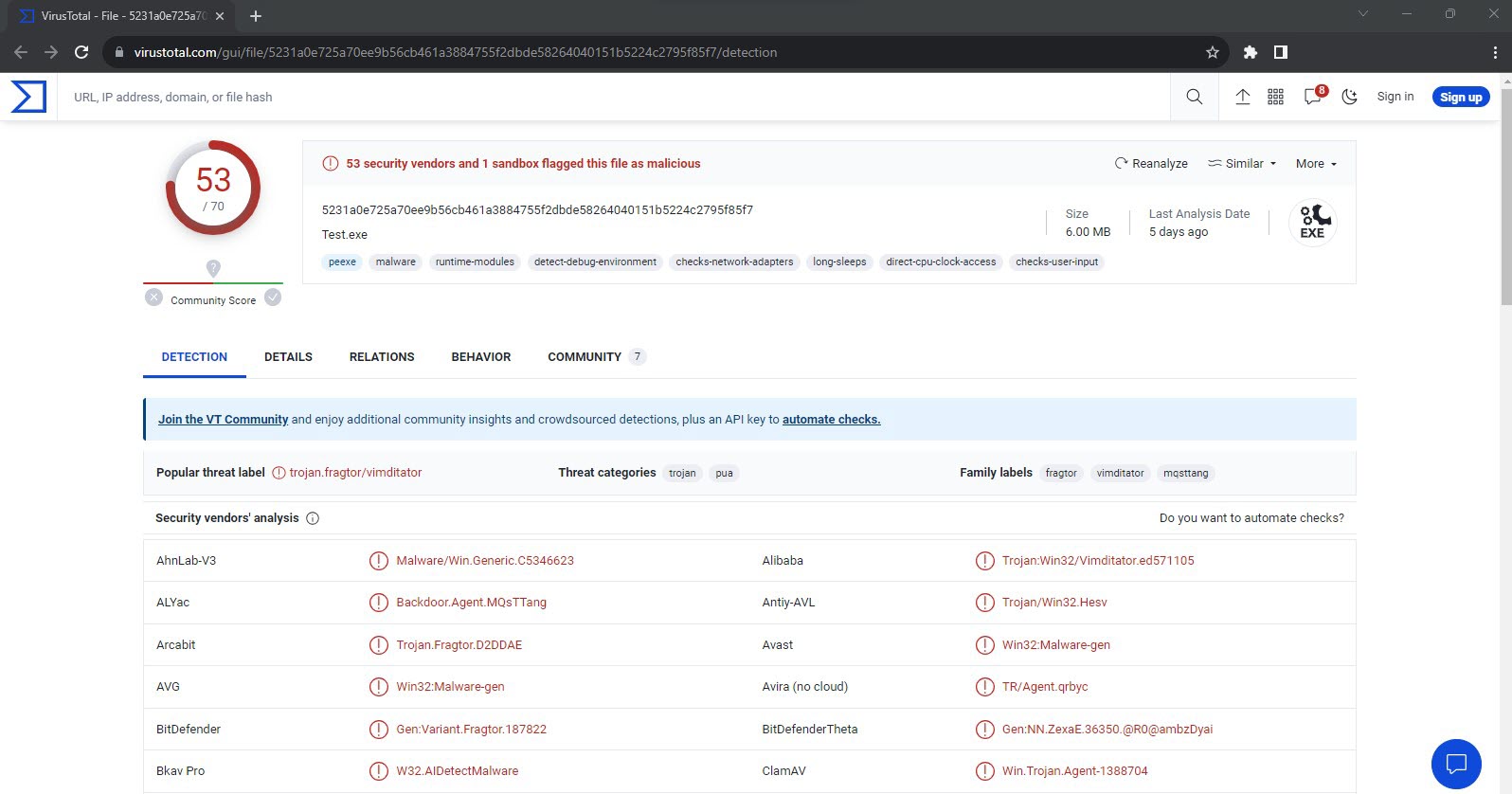
MQsTTang backdoor on VirusTotal site
Spreading methods
MQsTTang Backdoor is malicious software variant designed to clandestinely forge an undisclosed gateway into a computer system. This stratagem sidesteps security countermeasures, furnishing unsanctioned entry. Once embedded, the malware orchestrates a linkage with a distant command and control server, facilitating assailants to dispatch directives and procure data from the compromised system.
Moreover, the malware’s backdoor capability empowers malefactors to uphold an enduring presence on the breached system. This fosters streamlined execution of their operations across an extended temporal span.
Utilize trusted antivirus software and keep it current. Regularly update your operating system, web browser, and programs. Exercise caution with emails from unfamiliar sources; avoid opening attachments and clicking links. Download software solely from official sources, refraining from pirated or cracked versions.
Remove MQsTTang Backdoor with Gridinsoft Anti-Malware
We have also been using this software on our systems ever since, and it has always been successful in detecting viruses. It has blocked the most common Stealers as shown from our tests with the software, and we assure you that it can remove MQsTTang Backdoor as well as other malware hiding on your computer.
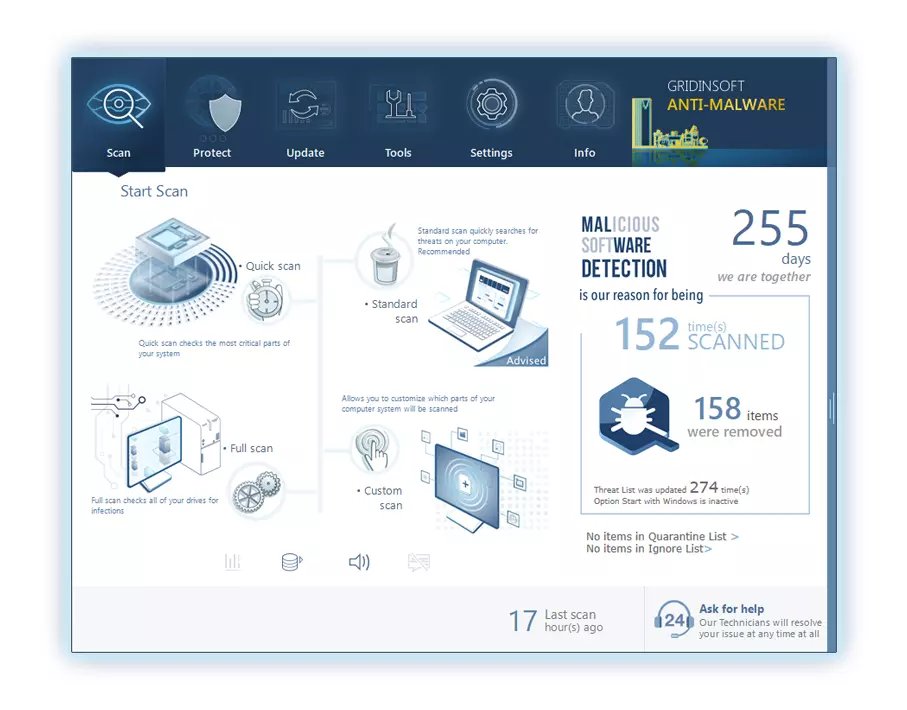
To use Gridinsoft for remove malicious threats, follow the steps below:
1. Begin by downloading Gridinsoft Anti-Malware, accessible via the blue button below or directly from the official website gridinsoft.com.
2.Once the Gridinsoft setup file (setup-gridinsoft-fix.exe) is downloaded, execute it by clicking on the file.
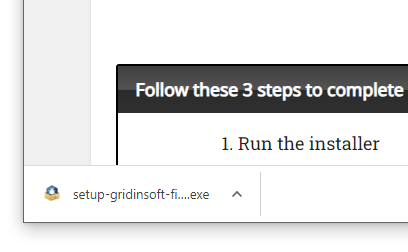
3.Follow the installation setup wizard's instructions diligently.
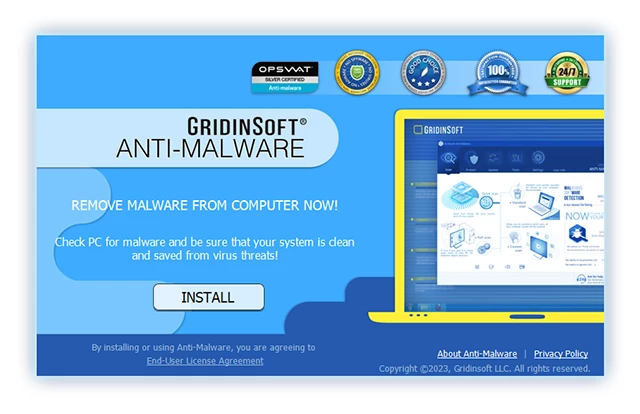
4. Access the "Scan Tab" on the application's start screen and launch a comprehensive "Full Scan" to examine your entire computer. This inclusive scan encompasses the memory, startup items, the registry, services, drivers, and all files, ensuring that it detects malware hidden in all possible locations.
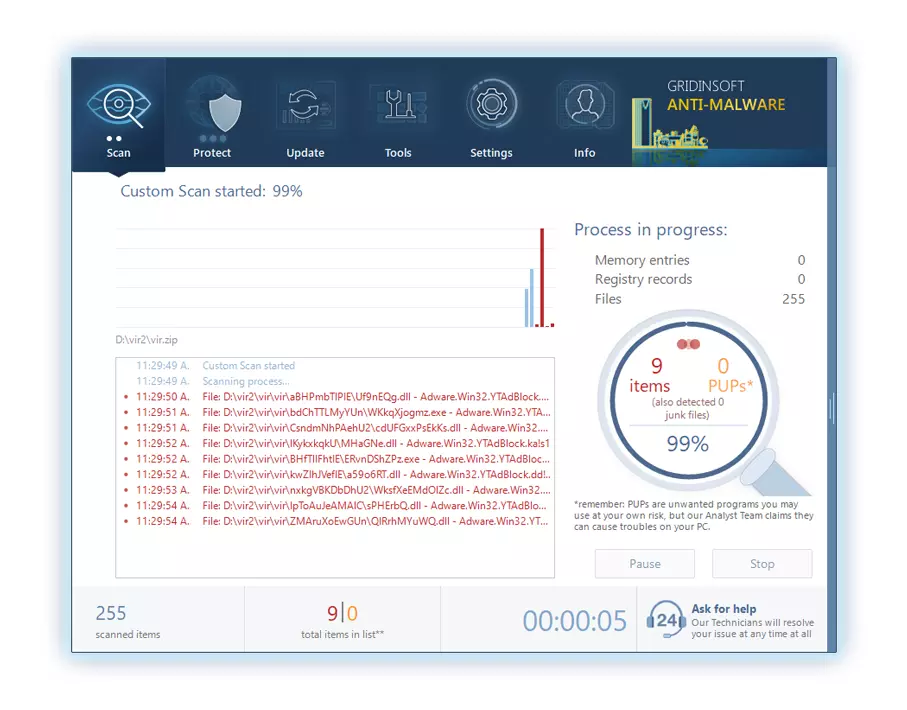
Be patient, as the scan duration depends on the number of files and your computer's hardware capabilities. Use this time to relax or attend to other tasks.
5. Upon completion, Anti-Malware will present a detailed report containing all the detected malicious items and threats on your PC.
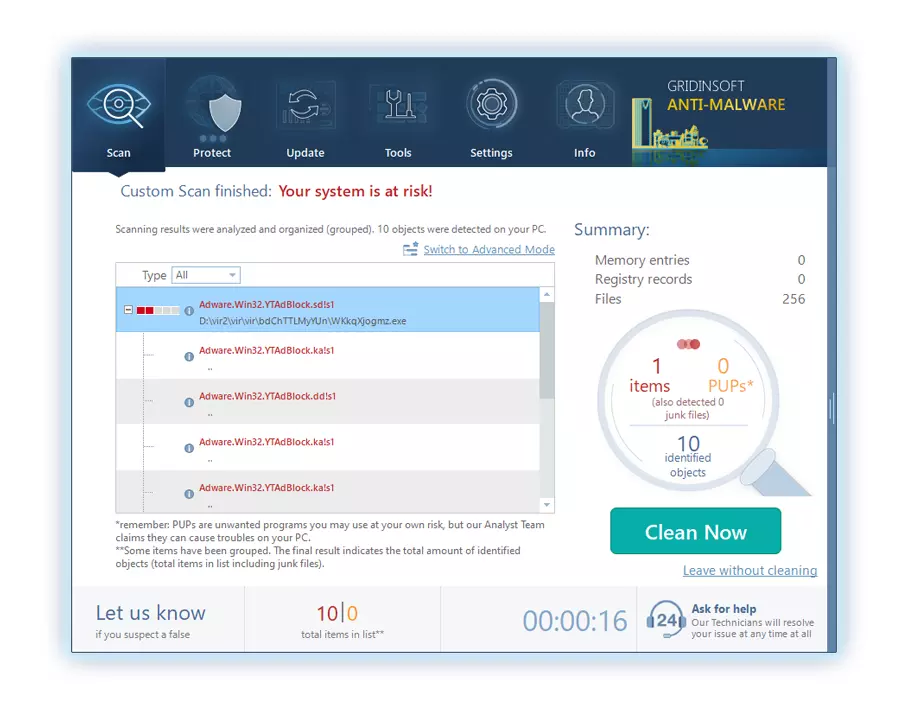
6. Select all the identified items from the report and confidently click the "Clean Now" button. This action will safely remove the malicious files from your computer, transferring them to the secure quarantine zone of the anti-malware program to prevent any further harmful actions.
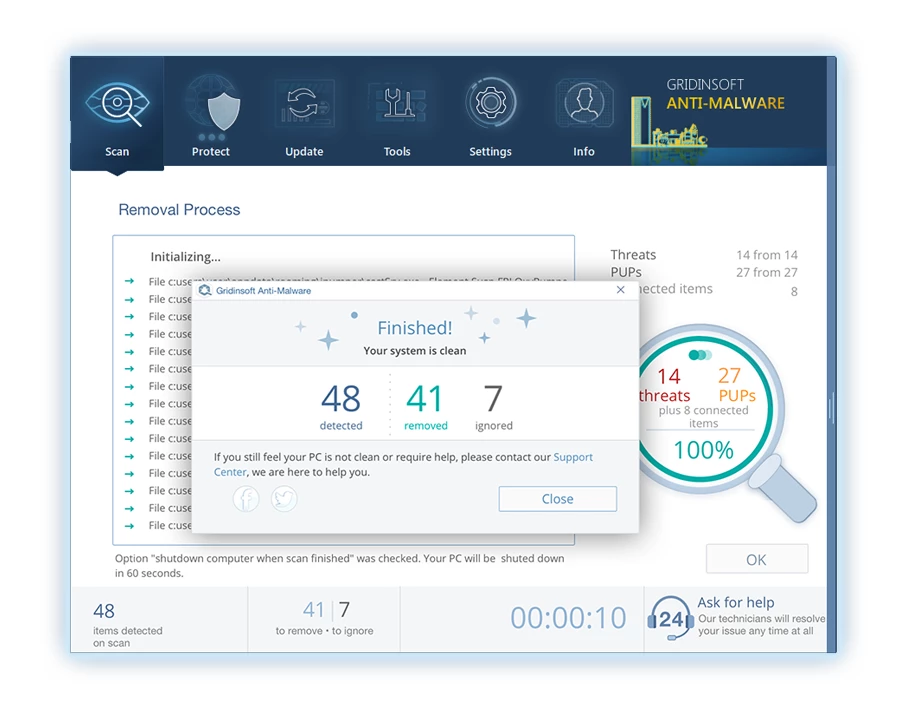
8. If prompted, restart your computer to finalize the full system scan procedure. This step is crucial to ensure thorough removal of any remaining threats. After the restart, Gridinsoft Anti-Malware will open and display a message confirming the completion of the scan.
Remember Gridinsoft offers a 6-day free trial. This means you can take advantage of the trial period at no cost to experience the full benefits of the software and prevent any future malware infections on your system. Embrace this opportunity to fortify your computer's security without any financial commitment.
Trojan Killer for “MQsTTang Backdoor” removal on locked PC
In situations where it becomes impossible to download antivirus applications directly onto the infected computer due to malware blocking access to websites, an alternative solution is to utilize the Trojan Killer application.
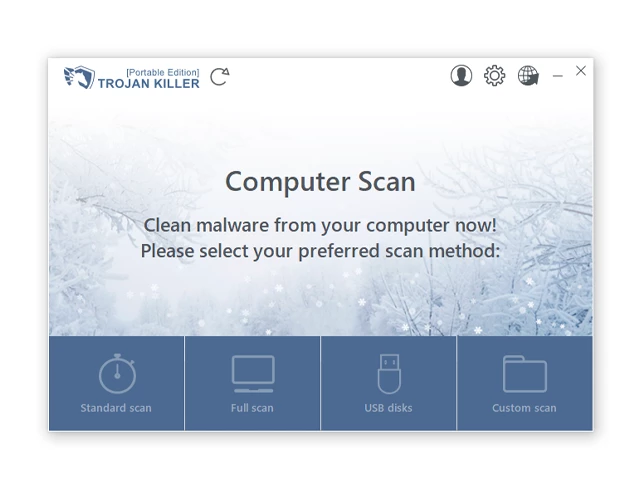
There is a really little number of security tools that are able to be set up on the USB drives, and antiviruses that can do so in most cases require to obtain quite an expensive license. For this instance, I can recommend you to use another solution of GridinSoft - Trojan Killer Portable. It has a 14-days cost-free trial mode that offers the entire features of the paid version. This term will definitely be 100% enough to wipe malware out.
Trojan Killer is a valuable tool in your cybersecurity arsenal, helping you to effectively remove malware from infected computers. Now, we will walk you through the process of using Trojan Killer from a USB flash drive to scan and remove malware on an infected PC. Remember, always obtain permission to scan and remove malware from a computer that you do not own.
Step 1: Download & Install Trojan Killer on a Clean Computer:
1. Go to the official GridinSoft website (gridinsoft.com) and download Trojan Killer to a computer that is not infected.
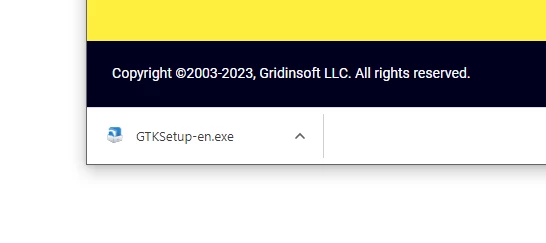
2. Insert a USB flash drive into this computer.
3. Install Trojan Killer to the "removable drive" following the on-screen instructions.
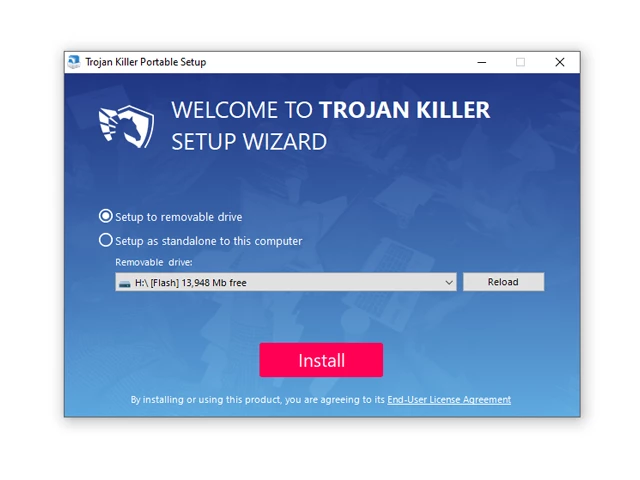
4. Once the installation is complete, launch Trojan Killer.
Step 2: Update Signature Databases:
5. After launching Trojan Killer, ensure that your computer is connected to the Internet.
6. Click "Update" icon to download the latest signature databases, which will ensure the tool can detect the most recent threats.
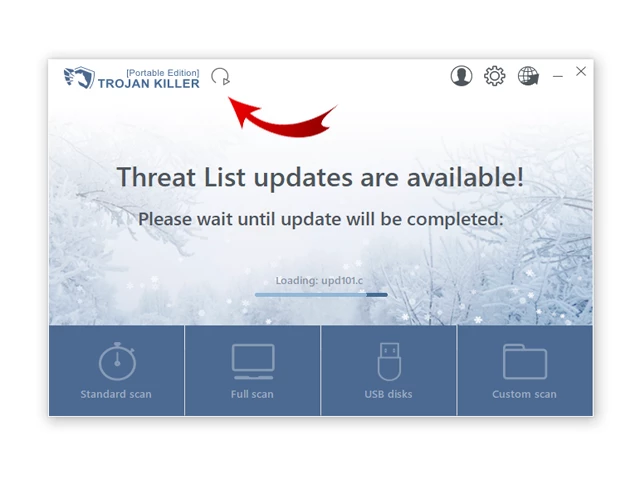
Step 3: Scan the Infected PC:
7. Safely eject the USB flash drive from the clean computer.
8. Boot the infected computer to the Safe Mode.
9. Insert the USB flash drive.
10. Run tk.exe
11. Once the program is open, click on "Full Scan" to begin the malware scanning process.
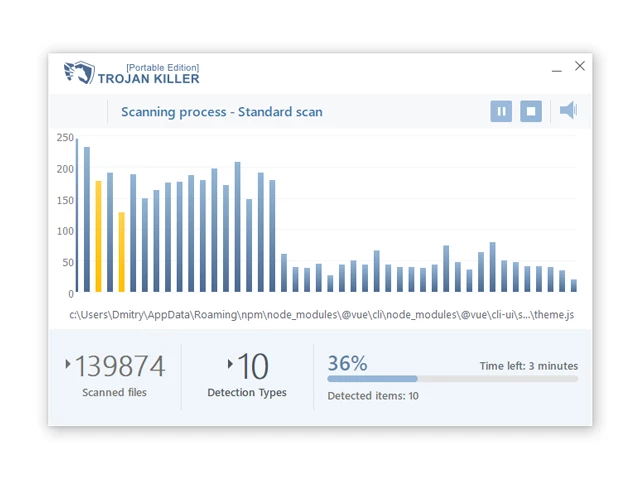
Step 4: Remove Found Threats:
12. After the scan is complete, Trojan Killer will display a list of detected threats.
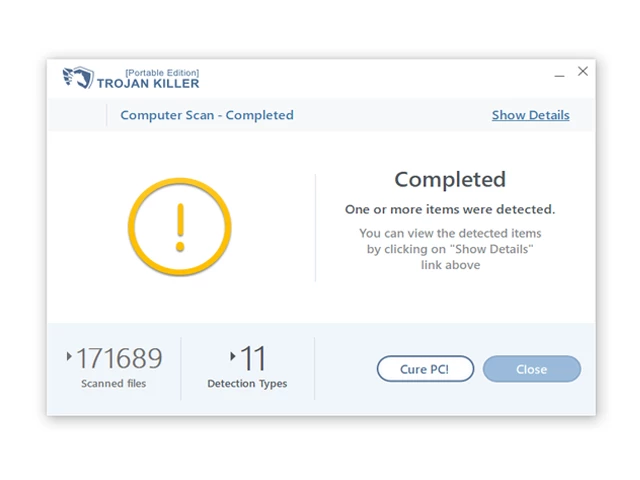
13. Click on "Cure PC!" to remove the identified malware from the infected PC.
14. Follow any additional on-screen prompts to complete the removal process.
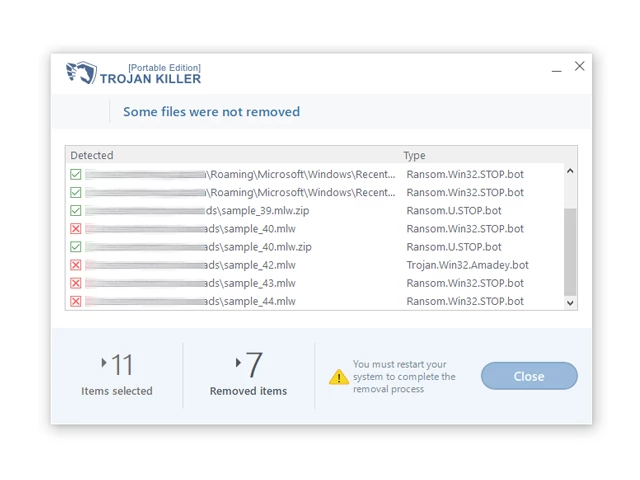
Step 5: Restart Your Computer:
15. Once the threats are removed, click on "Restart PC" to reboot your computer.
16. Remove the USB flash drive from the infected computer.
Congratulations on effectively removing MQsTTang Backdoor and the concealed threats from your computer! You can now have peace of mind, knowing that they won't resurface again. Thanks to Gridinsoft's capabilities and commitment to cybersecurity, your system is now protected.
Frequently Asked Questions (FAQ)
Reformatting your storage device should only be considered as a last resort for removing MQsTTang Backdoor malware. Prior to taking such drastic action, it is advisable to perform a comprehensive scan using trustworthy antivirus or anti-malware software.
Malware poses a significant risk to the security and privacy of sensitive information, potentially leading to identity theft, financial loss, and unauthorized access to personal accounts. Furthermore, it can disrupt the normal operation of a system, causing performance issues, system crashes, and data corruption.
The purpose of MQsTTang Backdoor is to enable remote access and control of compromised devices. It allows threat actors to perform various malicious activities, such as unauthorized access, data theft, system manipulation, and disabling security measures, potentially causing significant harm to individuals and organizations.
Gridinsoft Anti-Malware has the ability to identify and eliminate most malware infections. Nevertheless, it is crucial to recognize that sophisticated malware can remain hidden deep within the system. Consequently, conducting a complete system scan is imperative to detect and eradicate malware.
How to Remove MQsTTang Backdoor Malware
Name: MQsTTang Backdoor
Description: MQsTTang emerges as a formidable threat, meticulously targeting European and Asian government bodies, notably Ukraine and Taiwan. Operating as a backdoor malware, it infiltrates systems, granting remote control to execute commands. This enables data exfiltration, file manipulation, and potential deployment of further malicious payloads. MQsTTang's utilization of the MQTT protocol for communication amplifies its potency, emphasizing the need for proactive defense measures.
Operating System: Windows
Application Category: Malware

